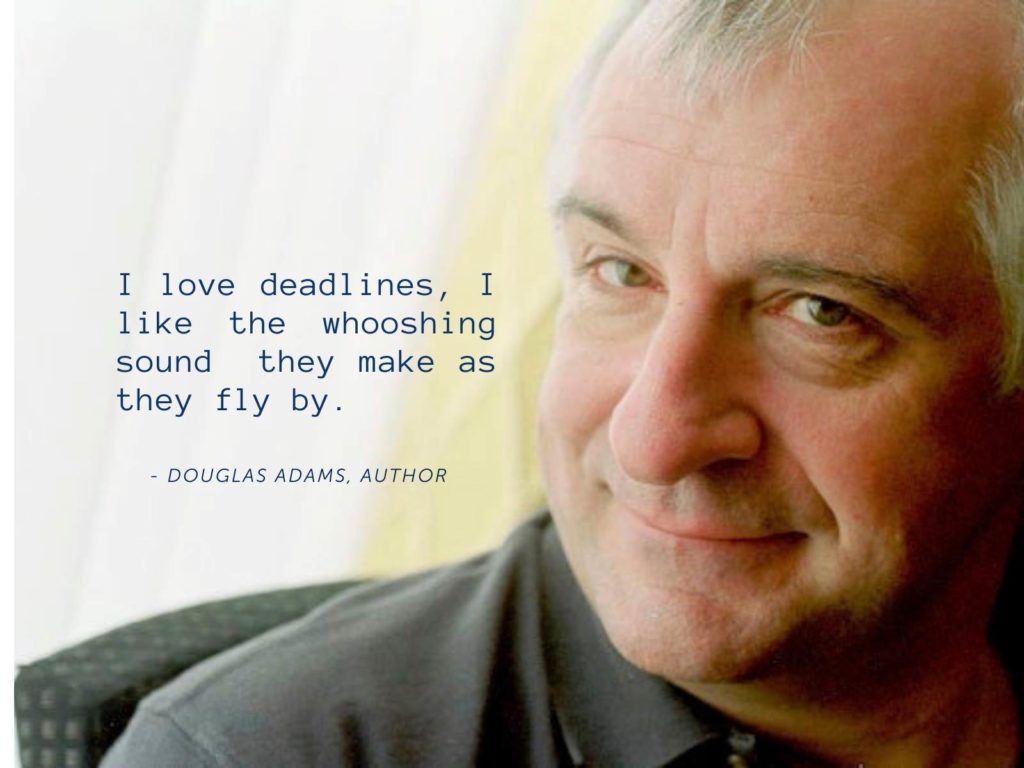Thesis writing: Covidence's top ten tips
Whatever approach you take to writing your thesis, you’ll know you’re in for a lot of work. Writing is a time-consuming process and for most people the work must fit around a competing list of other tasks and responsibilities. I’ve read a lot of theses in my work as a freelance editor and proofreader. I have also supported authors’ efforts to meet the writing deadline on their book chapters. Some things come up time and again and so I’ve put together this list of tips to keep you on track.
1. 🗺️ Plan your time
Plan your time and follow the plan. Does work expand to fit the time available for its completion or contract to fit the time we give it? Either way, you probably have a deadline. The deadline is your friend. It signals to you from a point in the future when writing your thesis is over. To work productively between now and that happy day, set yourself a series of achievable milestones and stick to them. The milestones could be based around completing a particular task, chapter, or number of words. The important thing is that by imposing this schedule on yourself, you assume control over meeting the deadline. Whether you think your work is expanding or shrinking to fit the time available, the most important thing is to feel confident that you will hit your deadline.

2.⌚ Unlock your productivity
Unlock your productivity. Understand how you work best and schedule your time accordingly. Early birds can achieve a lot before breakfast and night owls think best after dark. Lots of writers find the pomodoro technique of scheduled focus and regular breaks helpful and others find that the last minute focuses their mind like nothing else (⚠️ warning: this is a high risk strategy). Take some time to find what works well for you and play to your strengths.
3. ✍️ Onto the writing: follow a structure
Aim for text that is engaging and easy to process for the reader. One way to achieve this is to vary the length of your sentences. By using this technique, you can develop a basic argument into something more complex in a clear and step-wise manner. The contrast between long and short sentences also adds rhythm and pace to your writing. Give it a try!
4. 😘 K.I.S.S principle
Remember the KISS principle: keep it short and simple. Of course your thesis will contain complex arguments, detailed analysis, and some long sentences (see item 3). For that reason, it is important to be as clear and succinct as possible. Intended meaning can easily be obscured by poor expression of ideas and by language that is needlessly verbose. Brevity is a discipline that we all apply in other areas of our lives (hello, Twitter!) so make it work for your thesis and don’t allow muddled writing to cloud the view of your excellent research. George Orwell put it best: “If it is possible to cut a word out, always cut it out”.
5. 🔍 The middle section is important too
Give as much focus to the writing in the middle sections of the thesis as you do to the polished introduction and carefully honed conclusions. The neglected middle section deserves your careful attention: if the quality of the writing dips here, you make the reader’s task more difficult at a time when their concentration could be starting to flag.
6. ☑️ Check your brief
Especially, find out if and how reporting standards need to be incorporated into your work. If your thesis includes systematic review data, it is likely you will need to follow the PRISMA guidelines, an evidence-based minimum set of items for reporting in systematic reviews and meta-analyses. Incorporate these into early drafts rather than having to slot them in as an afterthought. If possible, show drafts or outlines of your thesis to your supervisor and ask them to confirm that you are on track.
7. 📝 Have a system for making reliable notes
Have a system for making reliable notes as you write (sticky notes, comments, whatever works for you). If you type the notes directly into your manuscript for convenience, make sure they are also easy to find and remove later, >>like this<< for example. Give your notes enough context to make them intelligible several months down the line – it’s maddening to come across an old note that looks important but that you no longer understand. In Covidence, users can quickly and easily add notes to the individual studies in their systematic review. These notes can be exported along with study data to ensure that all the information is captured in one place for easy retrieval once the thesis writing gets underway.

8. 🤯 No stress to reference management
Do you have reference anxiety? Let the software take the strain and give yourself more time to focus on the interesting stuff. Reference management software is a powerful tool that lets you create a database of references. From there you can effortlessly drop the citations (formatted to your exact specification) into your document as you write. Not only will this save you tonnes of time and effort, it will also improve the consistency and accuracy of your referencing. Free packages include Zotero, Mendeley and EndNote online. Check out this useful comparison of features.
9. 📄 Find out the requirements for document formatting
Find out the requirements for document formatting and layout before you start. Understanding how to apply them at the outset will prevent last-minute stress. Do you know how to set up an automatic table of contents? What about inserting cross-references or using document templates? This sort of functionality won’t just help your reader, it will also make it easier for you to navigate your document and quickly jump between the sections as you write.
10. ✒️ Editing and revisions
If you decide to use a professional editor (and you should first find out whether this is allowed by your institution), reach out in plenty of time. Some editing societies (for example, ACES, CIEP, IPEd) maintain directories of freelancers that you can search by specialism to find someone with the necessary understanding of your subject area. Editing is a labour-intensive job and you will need to allow enough time in your schedule, not just for the editor to complete their work, but for you to review the edits and decide on the changes you want to make. Agreeing a date to send your work to the editor can motivate you to make one final sprint for the finish line. And if you’re not ready by the agreed date, do not be tempted to send the editor a draft or an incomplete piece of work. This just means that the editing and revisions will need to be done twice at the cost of further time and expense. So be kind to yourself – hit your deadline! 🙌
Conclusion
In conclusion, writing skills are an important part of producing a thesis you can be proud of. Have any tips of your own to share with our community of systematic reviewers and evidence enthusiasts? We’d love to hear from you!
Covidence can speed up the screening and data extraction stages of your systematic review to keep your project on track and on time. Sign up for a free trial today.




